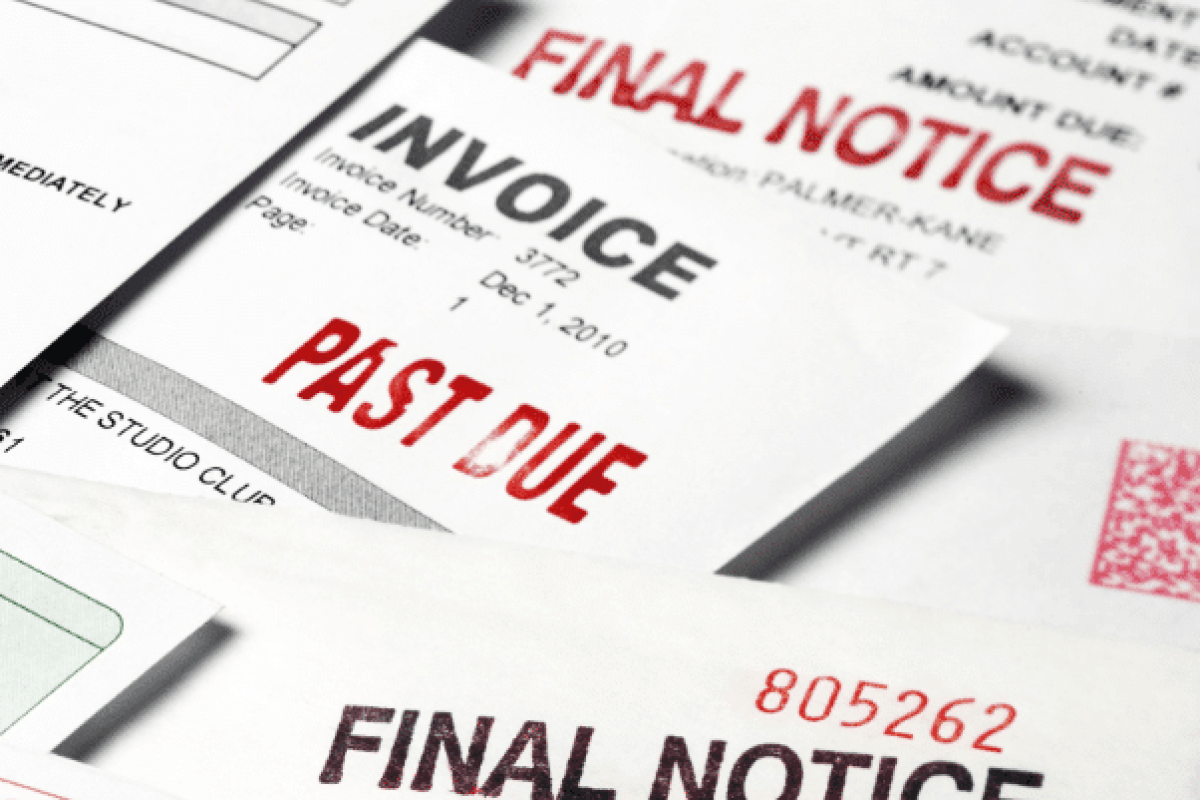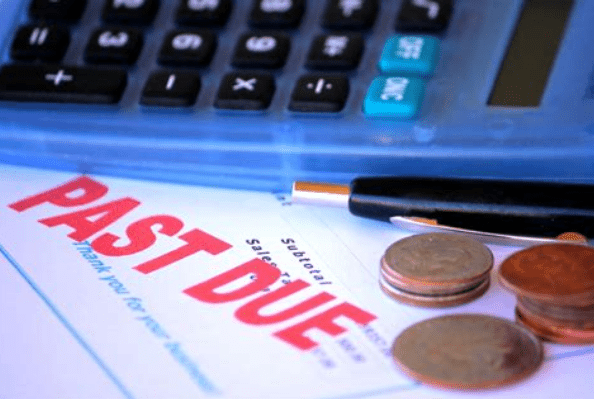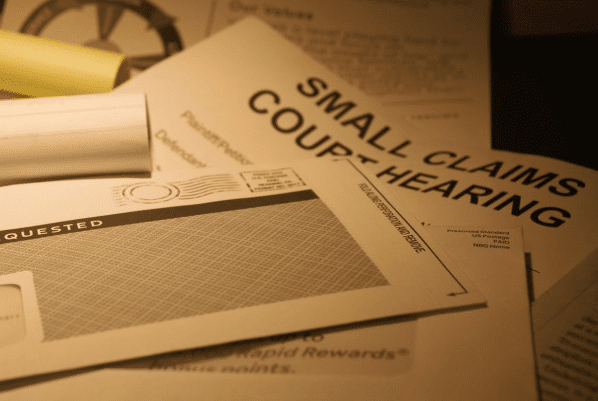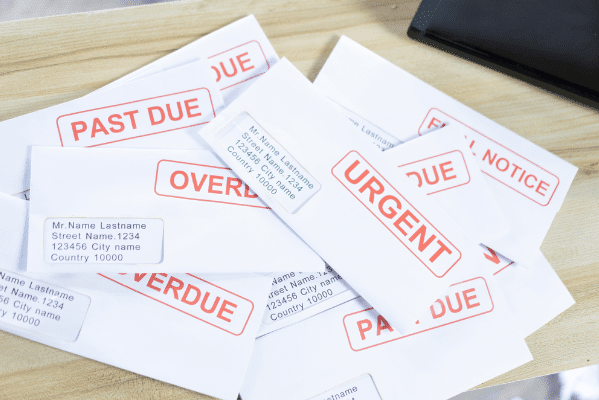In Indiana, you have 20 days to respond to a debt lawsuit. Your response should address each claim in the Complaint, assert affirmative defenses, and provide a copy of your Answer document to the opposing attorney after filing it with the court. Additionally, settling the debt before court is an option worth considering. ZumaZip offers assistance with each of these steps and more, ensuring you navigate the process effectively.
Facing a debt lawsuit in Indiana can feel overwhelming, akin to receiving a reminder for a dreaded dental appointment. But don’t despair – we’re here to support you through it all.
Ignoring a Summons is not an option; it’s essentially giving the creditor an easy victory. Instead, it’s time to fight back. You have rights, and Indiana laws are on your side. Don’t let debt collectors win without a challenge – it’s far more satisfying to emerge victorious.
In this article, we’ll guide you through the necessary steps to respond to a debt lawsuit in Indiana. From understanding state-specific deadlines, forms, and laws to asserting your rights, we’ve got you covered. Let’s dive in and tackle this together.
Table of Contents
- Deadlines
- Forms
- Steps to Respond
- Alias Summons
- Statute of Limitations in Indiana
- Settle your debt
- What is ZumaZip?
- Indiana Legal Aid Organizations
- Key Takeaways
- Guides for Other States
ZumaZip Settles offers assistance in settling your debt in Indiana for a reduced amount.
Respond to the Indiana debt lawsuit before the 20-day deadline
In Indiana, you only have 20 days to file an Answer with the court after you’re served the Summons and Complaint. Indiana Civil Procedure Rule 6(C) states:
“A responsive pleading required under these rules, shall be served within twenty [20] days after service of the prior pleading.”
When you receive a Summons, you may not know what to do or who to call. You may not be able to afford an attorney to represent you in court. But if you do nothing, it will snowball. Filing a written Answer gives you a fighting chance, and your case may even be dismissed.
Without a response from you, the court may enter a default judgment against you, which gives the creditor the ability to seize your bank account, garnish your wages, and attach a lien on your home to recoup the money you owe. You’ll owe whatever the plaintiff says you owe (plus interest), and at that point, there’s little you can do about it. This is why it’s so important to respond within 20 days to give yourself a fighting chance.
Use this pro se Answer template to respond to a debt Summons in Indiana
The ZumaZip Answer form is probably the easiest way to create your response. ZumaZip’s Answer form is legitimate and professional, and it can even include an attorney’s review of your documents before filing. This is a tried and true method, as ZumaZip has successfully filed Answers for pro se defendants in dozens of cases in Indiana. Keep reading to find out more about what we can do to help.
Indiana does not have a statewide Answer form for self represented litigants in civil cases, but here’s an example form for an appearance by an attorney in a civil case, to give you an idea of what an attorney would fill out if they represented you.
Follow these steps to respond to a debt collection case in Indiana
It’s important to pay attention to the time limit for response, which we mentioned earlier is 20 days. If you don’t respond within the 20-day period, you will automatically lose your case by default judgment. This opens the door to further financial problems. But there’s no reason you have to let this happen.
Fortunately, answering the Summons is easy, and you have just three steps to submit a response:
- Address each claim listed in the Complaint.
- Assert your affirmative defenses.
- File the Answer document with the court, and send a copy to the plaintiff.
1. Address each claim listed in the Complaint
It may seem a little daunting at first, but follow the instructions we’ve given and it will make sense to you.
Read the entire complaint, and decide how you want to respond to each of the numbered paragraphs. You should answer each accusation with one of these three responses:
- Admit (like saying this is true)
- Deny (like saying prove it)
- Deny due to lack of knowledge (like saying I don’t know)
Many attorneys recommend denying all of the accusations (known as a “general denial”). This makes it harder for the plaintiff, because they have to prove the allegations are true, which requires more work, time, and resources on their part. Answer each allegation honestly, and it’s fine to say that you don’t know the answer. If you disagree, include a sentence of why you disagree.
Ultimately, it’s up to you how you respond, and you can also amend your answer later if you need to.
2. Assert your affirmative defenses
This is the part where you get to share your side of the story, or in other words, defend yourself. Avoid lengthy answers and stories. You must list all your affirmative defenses now, because once you’ve filed your Answer, you can’t bring them up in the future if the case progresses.
Here are some common affirmative defenses you can consider:
- The statute of limitations has expired, and the plaintiff no longer has the right to sue (this is a big one, and many collectors know better but file suit anyway).
- The debt/account does not belong to you. As a victim of identity theft, another individual used your name and information to incur this debt.
- You believe that the debt amount is incorrect–you owe the plaintiff, but not the amount they are suing for.
- The account was closed or canceled, and you no longer owe the plaintiff anything.
- The debt was settled for a different amount than the one in the complaint.
- The debt was fully or partially paid and settled (“satisfied”).
- The debt was excused.
- The plaintiff is acting in “bad faith” with the lawsuit.
- You were a co-signer on this debt with another individual, but were never informed of your rights as the co-signer.
- The debt collector engaged in harassment over this debt.
Note that your inability to pay the debt will not qualify as an affirmative defense, unless you’ve previously filed for bankruptcy. If you use this defense, you need to produce documentation showing that the debt was, in fact, legally discharged.
3. File the Answer document with the court and send a copy to the plaintiff
Finally, it’s time for you to swing the bat and hit the ball back into their court.
File the original copy of your Answer with the court and send a copy of it to the plaintiff’s attorney. Fortunately, Indiana also has e-filing available, so you don’t have to use snail mail to send your Answer. If you choose to mail it in, make sure to send it via certified mail with a return receipt requested. You’ll be able to trace the letter if it’s lost, and you will get a postcard back if and when the recipient does receive it and sign for it.
ZumaZip can help you file an Answer in all 50 states.
What if I’m served an alias Summons in Indiana?
Alias Summons is just a fancy way of saying the second Summons served after the first Summons failed delivery. In other words, if the plaintiff tried to serve you with the original Summons and you weren’t reached, they will send another alias Summons to continue with the lawsuit.
The rules for responding to an alias Summons are the same as any other Summons: you should respond with a written Answer within 20 days to avoid default judgment. Review the tips above for more information on responding to an alias Summons in Indiana.
What happens if I don’t receive a Summons?
If you’re never served a Summons, the lawsuit may continue forward without your knowledge. If this is the case, a default judgment may be entered in the case.
If you find out that a judgment is against you without ever receiving a Summons, you can file a Motion to Set Aside Judgment and explain to the court that you were unaware of the suit. If the court accepts your Motion (which they almost always do), you will be able to respond with your written Answer and use “improper service” as one of your affirmative defenses.
Avoid default judgment in Indiana by responding to the alias Summons
To prevent a default judgment in Indiana, it’s crucial to respond to the alias Summons within 20 days. Failure to do so may result in the plaintiff obtaining a default judgment, enabling them to garnish your wages, levy your bank accounts, and place liens on your property.
Here’s an example scenario:
Ted was sued by Discover Card for a credit card debt in Indiana. He received the court Summons and Complaint on March 5 but failed to respond before the deadline of March 26. Consequently, Discover Card filed a default judgment against Ted, which the court granted.
Months later, Ted noticed a significant reduction in his paycheck. Discover Card had successfully garnished his wages, and his employer was instructed to deduct money each month to pay off the debt.
Don’t find yourself in Ted’s situation. File your Answer as soon as possible to improve your chances of winning the case.
Check the Indiana statute of limitations on debt collection
The statute of limitations is a legal time limit that someone has to file a lawsuit against you. Indiana has more than one statute of limitations on debt, and it depends on the type of debt. The table below illustrates the statute of limitations on different types of debt in Indiana, as outlined in Ind. Code §34 Article 11.
| Debt Type | Deadline |
|---|---|
| Credit Card | 6 years |
| Medical | 6 years |
| Auto Loan | 6 years |
| Student Loan | 6 years |
| Personal Loan | 6 years |
| Promissory Note | 10 years |
| Mortgage | 10 years |
| Judgment | 20 years |
| Source: Ind. Code § 34-11-2-9, 11, 12 |
In Indiana, the statute of limitations for credit card debt, along with most other types of debt, is six years. This period begins from the last activity on the account, such as the last purchase made with the credit card or the last payment towards the balance.
If a debt surpasses Indiana’s statute of limitations, the company can no longer initiate a lawsuit against you for that debt. However, if they attempt to do so, one of your defenses is that the debt is too old.
For example, if you’re sued by a collections agency eight years after defaulting on a credit card debt, and it’s two years past the statute of limitations, they cannot sue for it. Nonetheless, it’s crucial to file an answer to the lawsuit. Failing to respond could result in them winning the case, and you’d be liable not only for the debt but also for attorney fees and other expenses.
It’s important to note that exceeding the statute of limitations doesn’t absolve you of the debt, and it will remain on your credit report. It simply means they cannot take legal action against you for it.
Settle your debt in Indiana with ZumaZip Settle
Whether you’re aware of the debt you owe or facing a lawsuit, debt settlement can be a viable option. ZumaZip Settle simplifies the process by leveraging technology to facilitate communication with creditors or debt collectors. From sending and receiving settlement offers to managing documentation and transferring payments securely, ZumaZip Settle streamlines the entire debt settlement journey while safeguarding your financial information.
ZumaZip is a comprehensive platform designed to assist individuals in dealing with debt-related challenges. Whether you’re responding to a debt lawsuit, corresponding with collectors, or seeking to settle a debt, ZumaZip provides tailored solutions to simplify the process.
One of ZumaZip’s key features is its Answer service, which guides users through the completion of their response documents in a step-by-step manner. The web application prompts users with all necessary questions, ensuring a thorough and accurate response. Additionally, each document undergoes attorney review before being filed, providing users with peace of mind and confidence in their legal actions.
Indiana Legal Aid Organizations can help you
If you need to find a lawyer but don’t have the funds for a retainer, you can seek legal help at some of these organizations:
Indiana Legal Services, Inc.
800-869-0212
With the main office in Indianapolis and eight branch offices throughout the state, this nonprofit law firm provides legal assistance for civil (non-criminal) matters to eligible low-income families in the state of Indiana.
Indiana Legal Help
Supported by the Indiana Bar Association and the Indiana Supreme Court through the Coalition for Court Access, Indiana Legal Help offers assistance with civil matters to citizens “of limited means.” Contact them at info@indianalegalhelp.org, or use their directory page to find legal help.
Indianapolis Bar Association
135 N. Pennsylvania St., Suite 1500
Indianapolis, IN 46204
Phone: (317) 269-2000
Fax: (317) 269-1915
Indianapolis Legal Aid Society
615 N Alabama St #122
Indianapolis, IN 46204
Phone: (317) 635-9538
Fax: (317) 631-4423
Legal Services Organization of Indiana Inc.
151 North Delaware Street, Suite 1800
Indianapolis IN, 46204-2517
Hotline: (317)632-5764 (intake)
Phone: (800) 869-0212
Phone: (317)631-9436 (TDD)
Legal Services Program of Northern Indiana Inc.
639 Columbia St.
Lafayette IN, 47902-1455
Phone: (800) 382-7581
Legal Aid Corporation of Tippecanoe County, Inc.
212 N. 5th St.
Lafayette, IN 47901-1404
(765) 742-1068
Christian Ministries of Delaware County
401 E. Main St.
Muncie, IN 47305
(765) 288-0601
Indiana Legal Services – Consumer Law Center
Plaza Square South Suite 5
3303 Plaza Drive
New Albany, IN 47150
(812) 945-4123
Notre Dame Law Clinic
725 Howard Street
South Bend, IN 46617
(574) 631-6704
Valparaiso School of Law Clinic
651 South College Heritage Hall
Valparaiso University
Valparaiso, IN 46383
(219) 465-7903
Key Takeaways For Responding To Your Summons
So, in short, here’s the review on how to answer a Summons for debt collection in Indiana.
- Respond before the deadline: 20 days
- Use ZumaZip or the State of Indiana’s Answer form
Follow these steps to respond and defend yourself against the lawsuit:
- Answer each issue in the complaint, paragraph by paragraph.
- Assert any and all of your affirmative defenses, including an expired statute of limitations.
- File and serve the Answer with the court.
Consider reaching out to settle the debt before going to court. If you’d like some help, ZumaZIp’s easy online services can take care of everything in a matter of minutes.
We hope this gives you a better idea of how to move forward, as well as a little peace of mind when it comes to dealing with a debt collection lawsuit in Indiana.
What is ZumaZip?
ZumaZip is a convenient solution designed to streamline your response to a debt collection lawsuit. Here’s a breakdown of what you can expect when you use ZumaZip:
Firstly, you’ll access our user-friendly web application, which guides you through the process step by step. You’ll be prompted to answer a series of questions related to your specific situation. Once you’ve completed the questionnaire, you have the option to either print out the finalized forms and mail them to the appropriate courts yourself, or you can opt to utilize ZumaZip’s services to file them on your behalf. Additionally, if you choose this option, an attorney will review your document for added peace of mind.
If you’re seeking guidance on how to effectively respond to a debt collection lawsuit, ZumaZip can provide the assistance you need. Feel free to explore our FAQs for more information on what ZumaZip has to offer.
What if I haven’t been sued yet?
If you’ve only received a collections notice, but not a lawsuit, the best way to respond is with a Debt Validation Letter. When a debt collector contacts you in any way, whether it’s by phone or mail, you can respond by formally requesting a debt validation with a Debt Validation Letter . This letter notifies the collector that you dispute the debt and forces them to provide proof you owe the debt. They can’t call you or continue collecting until they provide validation of the debt. This flowchart shows how you can use a Debt Validation Letter to win.
Get started with a Debt Validation Letter here.
How to Answer a Summons for debt collection in all 50 states
Here’s a list of guides on how to respond to a debt collection lawsuit in each state:
- Alabama
- Alaska
- Arizona
- Arkansas
- California
- Colorado
- Connecticut
- Delaware
- Florida
- Georgia
- Hawaii
- Idaho
- Illinois
- Indiana
- Iowa
- Kansas
- Kentucky
- Louisiana
- Maine
- Maryland
- Massachusetts
- Michigan
- Minnesota
- Mississippi
- Missouri
- Montana
- Nebraska
- Nevada
- New Hampshire
- New Jersey
- New Mexico
- New York
- North Carolina
- North Dakota
- Ohio
- Oklahoma
- Oregon
- Pennsylvania
- Rhode Island
- South Carolina
- South Dakota
- Tennessee
- Texas
- Utah
- Vermont; Vermont (Small Claims court)
- Virginia
- Washington
- West Virginia
- Wisconsin
- Wyoming
Guides on how to beat every debt collector
Hey there! Facing off against a debt collector can feel like a daunting challenge, but fear not! We’re here to help you navigate through it all with our handy guides designed to assist you in beating every debt collector you encounter. Whether you’re facing a new lawsuit or dealing with a persistent collector, we’ve got your back. Stay positive, stay informed, and let’s tackle this together!
- Absolute Resolutions Investments LLC
- Accredited Collection Services
- Alliance One
- Amcol Clmbia
- American Recovery Service
- Asset Acceptance LLC
- Asset Recovery Solutions
- Associated Credit Services
- Autovest LLC
- Cach LLC
- Cavalry SPV I LLC
- Cerastes LLC
- Colinfobur
- Covington Credit
- Crown Asset Management
- CTC Debt Collector
- Cypress Financial Recoveries
- Delanor Kemper & Associates
- Eagle Loan of Ohio
- Educap
- Estate Information Services
- FIA Card Services
- Forster & Garbus
- Freshview Solutions
- Fulton Friedman & Gullace LLP
- Harvest Credit Management
- Howard Lee Schiff
- Hudson & Keyse LLC
- Integras Capital Recovery LLC
- Javitch Block
- Jefferson Capital Systems LLC
- LVNV Funding
- Mannbracken
- Mariner Finance
- Medicredit
- Michael J Adams PC
- Michael J Scott
- Midland Funding LLC
- Mullooly, Jeffrey, Rooney & Flynn
- Mountain Land Collections
- MRS Associates
- National Collegiate Trust
- Nationstar Foreclosure
- Northstar Capital Acquisition
- NCEP LLC
- NRC Collection Agency
- OneMain Financial
- Palisades Collection LLC
- Pallida LLC
- Paragon Revenue Group
- Pinnacle Collections Agency
- PMAB LLC
- Portfolio Recovery Associates
- Provest Law
- PYOD LLC
- Reunion Student Loan Finance Corporation
- Revenue Group
- Regents and Associates
- RSIEH
- Salander Enterprises LLC
- Second Round Sub LLC
- Security Credit Services
- Sherman Financial Group
- Suttell and Hammer
- T-Mobile
- Transworld Systems
- Tulsa Teachers Credit Union
- UCB Collection
- Velo Law Office
- Velocity Investments
- Waypoint Resource Group
- Weinberg and Associates
- Wolpoff & Abramson
Settle your medical debt
Having a health challenge is stressful, but dealing medical debt on top of it is overwhelming. Here are some resources on how to manage medical debt.
- Am I Responsible for My Spouse’s Medical Debt?
- Do I Need a Lawyer for Medical Bills?
- Do I Need a Lawyer to Fight Medical Bill Debt?
- Does Bankruptcy Clear Medical Debt?
- How Much Do Collection Agencies Pay for Medical Debt?
- How to Find Medical Debt Forgiveness Programs
- Is There a Statute of Limitations on Medical Bills?
- Medical Debt Statute of Limitations by State
- Summoned to Court for Medical Bills — What Do I Do?
- Summoned to Court for Medical Bills? What to Do Next
Stop calls from Debt Collectors
Do you keep getting calls from an unknown number, only to realize that it’s a debt collector on the other line? If you’ve been called by any of the following numbers, chances are you have collectors coming after you, and we’ll tell you how to stop them.



































